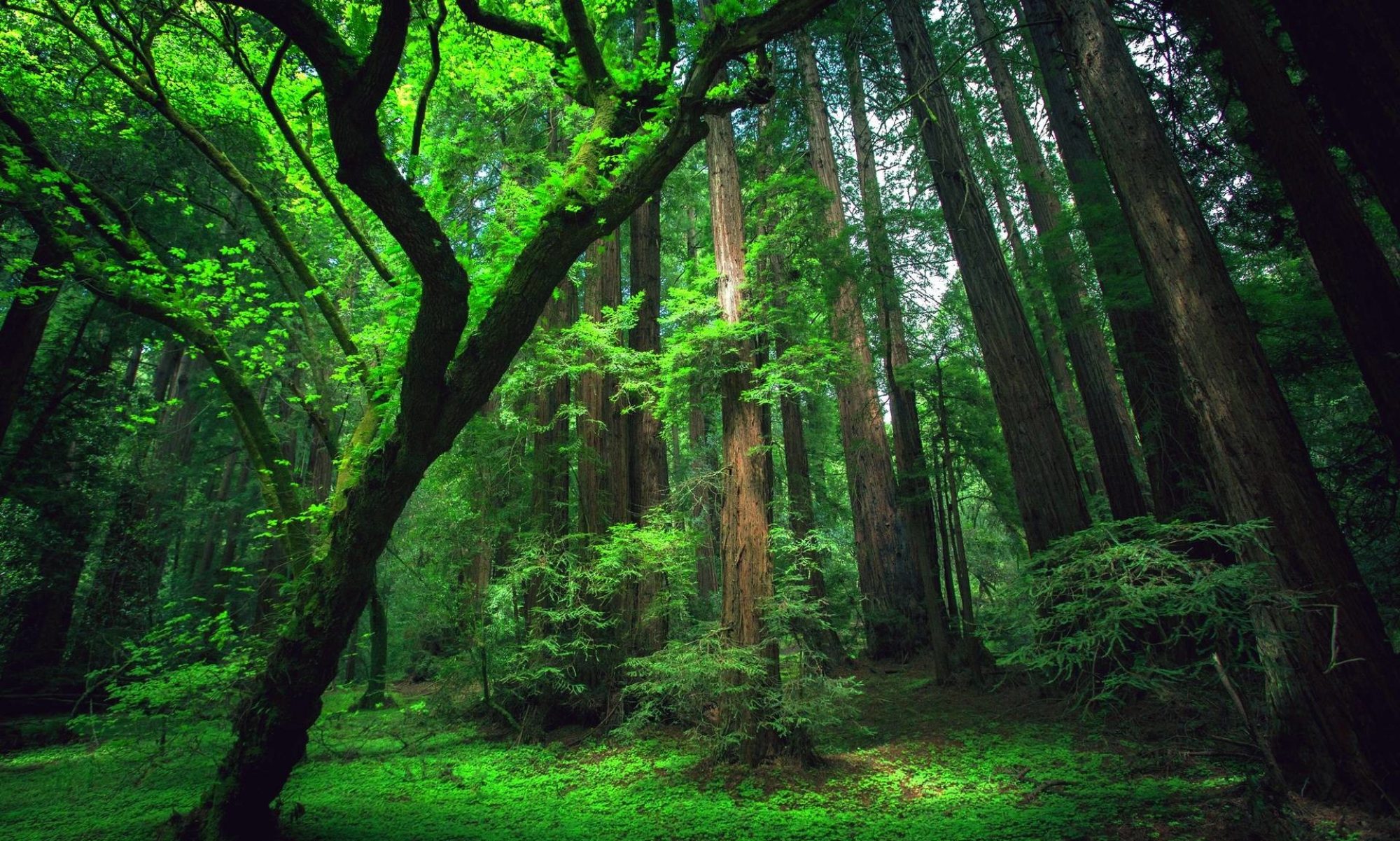Dr. Cavaliere’s Lab is housed in the Warner College of Natural Resources within the department of Human Dimensions of Natural Resources at Colorado State University.
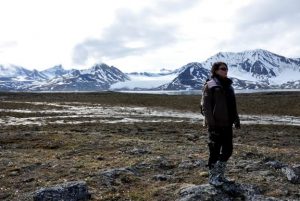
The heart of the Cavaliere Critical Conservation lab is the pedagogical relationships and research opportunities Dr. Cavaliere provides graduate students at CSU and other international universities. Dr. Cavaliere is passionate about teaching critical thinking skills to support students in furthering sustainability and conservation.
_____________________________________________________________________
**Application is now closed. Please do not contact Dr. Cavaliere or the Lab regarding this Teaching Assistantship. Future scholarships will be published here**
Ph.D. Graduate Teaching Assistantship: Colorado State University
Human Dimensions of Natural Resources: Cavaliere Tourism and Conservation Research Lab
Dr. Christina T. Cavaliere is recruiting a PhD student to begin in August 2024. Dr. Cavaliere is a conservation social scientist and international sustainable development specialist with a focus on linking tourism and biocultural conservation. Her areas of research involve the human dimensions of socio-ecological systems including tourism impacts. Please visit the Cavaliere Critical Conservation Lab website for more information.
The successful PhD applicant for this position would work in the lab and pursue an independent research project related to Dr. Cavaliere’s research on tourism and conservation. The student’s work should focus on tourism, conservation, and intersectional power structures as related to protected areas, wildlife, gender, climate change, sustainability, policy, and/or biocultural conservation.
The PhD position would include annual tuition support and funding through a Graduate Teaching Assistantship within the department. The successful applicant will be offered support for the first year and then reviewed annually to determine future funding. The applicant must have previously obtained a master’s degree with a research thesis in an area related to tourism and conservation, previous qualitative and quantitative research experience and knowledge of conservation issues related to tourism impacts.
Prospective students should email application materials to christina.cavaliere@colostate.edu by 15 February 2024 for full consideration: Only applicants selected for interviews will be contacted.
- CV
- Master’s degree research thesis and/or a published academic writing sample (Applicants must have completed a master’s degree in a related area)
- GRE results
- TOEFL scores (if applicable)
- Unofficial academic transcripts (bachelors and masters transcripts)
- Cover letter: (Why do you want to study in the Cavaliere Tourism and Conservation Lab?)
- Research Proposal: 2-page maximum excluding references (Be sure to detail how your research would address tourism, conservation, and intersectional power structures.)
- 3 academic references
___________________________________________________________________
For current information about graduate student’s working with Dr. Cavaliere, please visit the Graduate Students page.
Announcements:
The Cavaliere Critical Conservation Lab was honored to host Dr. Alberto Amore, a distinguished visiting scholar from the University of Oulu. Dr. Cavaliere invited Dr. Amore to present his research as it is deeply related to our lab’s research emphasis on biocultural conservation and tourism. Dr. Amore leads the Biodiverse Anthropocene Lab at the University of Oulu, focusing on tourism-related research in urban regeneration, planning, and resilience. His presentation is entitled “Resilience and regenerative turns in tourism,” and provides valuable insights into these interconnected areas of tourism studies. Dr. Cavaliere and the lab are excited to offer this research presentation free of charge to the public in partial fulfillment of CSU’s Land Grant mission.
Click here to watch a recording of this amazing presentation.
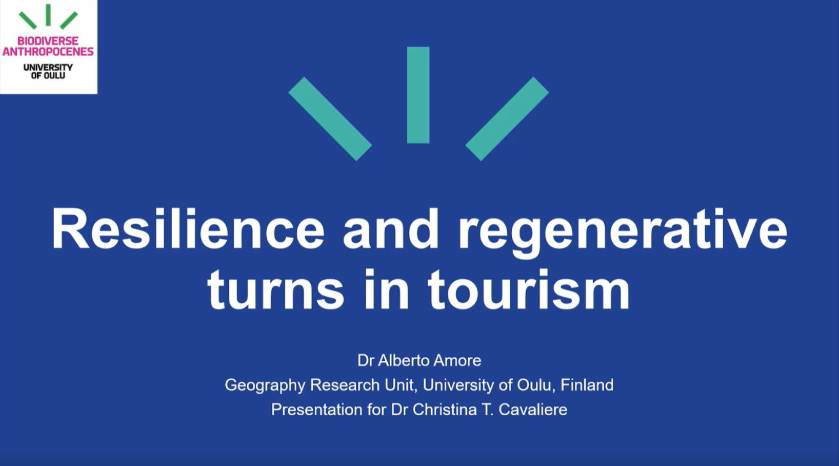
The Cavaliere Critical Conservation Lab hosted Dr. Julia Giddy as a visiting scholar from the University of Johannesburg! Click here to watch a recording of this amazing presentation.
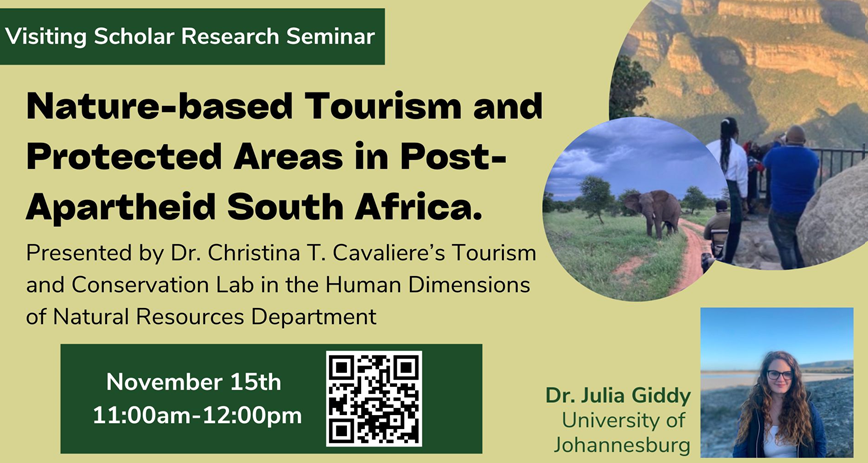
To become familiar with the graduate experience in the lab, view Julia Branstrator’s presentation of her PhD experience in Dr. Cavaliere’s Tourism and Conservation Lab at the 2022 Tourism Naturally Conference. Julia details her research process and experiences working with Dr. Cavaliere in both Ketchikan, Alaska and her PhD fieldwork in Nederland, Colorado. Watch Julia present her PhD experience in the following conference recording (19 minutes 11 seconds to 31 minutes – click here). This video offers the opportunity for future and potential students to understand more about the PhD journey with Dr. Cavaliere. To learn more about the Tourism and Conservation Lab’s research in Ketchikan and Nederland, click here and scroll!
Branstrator 2022 Tourism Naturally PhD Experience In Tourism and Conservation Lab
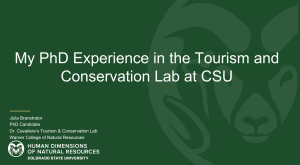
As part of Dr. Cavaliere’s tenure track appointment at Colorado State University, she oversees and instructs the following senior capstone courses: NRRT 442 Tourism Planning and NRRT 470 Tourism Impact.
Dr. Cavaliere has also designed the curriculum and provides instruction in the Masters of Tourism Management Program at CSU for NRRT 609 Tourism and Conservation and NRRT 679B Current Topics in Nature-Based Tourism.
NRRT 442 Tourism Planning examines the relationship among tourists, tourist developments and the planning of tourist attractions and services and products. It focuses on the planning of tourist resources and programs within a geographic region, as well as at a destination and site level. Planning tools and design concepts are reviewed and analyzed. A local and regional planning process in Colorado is applied through various examples and comparisons of successful planning practices. This course examines the role of sustainability in destination management and planning. Various national and international tourism and destination management organizations will be highlighted to demonstrate the evolving importance of tourism planning and management.
NRRT 470 Tourism Impacts provides a detailed examination of the economic, socio-cultural, environmental, and climate change impacts that can result from tourism. Different types of tourism are also examined, and the various impacts and outcomes that occur. Recognition is given to the fact that many tourism impacts are not easily defined and measured, being positive for some, yet negative for others. Also, what may be considered an economic impact, may also have socio-cultural (including political), environmental, and climate change effects. The course will review alternative forms of travel and tourism, and thus will contribute in demonstrating how tourism impacts the shared international goal of the world’s sustainable development and the UN Sustainable Development Goals (SDGs). This course examines all of these complexities as they relate to tourists, tourism destinations, and host communities.
For more information, visit https://warnercnr.colostate.edu/hdnr/undergraduate-study/b-s-natural-resource-tourism/.
Dr. Cavaliere has previously advised PhD students and instructed the Doctoral Tourism Planning course at ABAC PhD Program.
